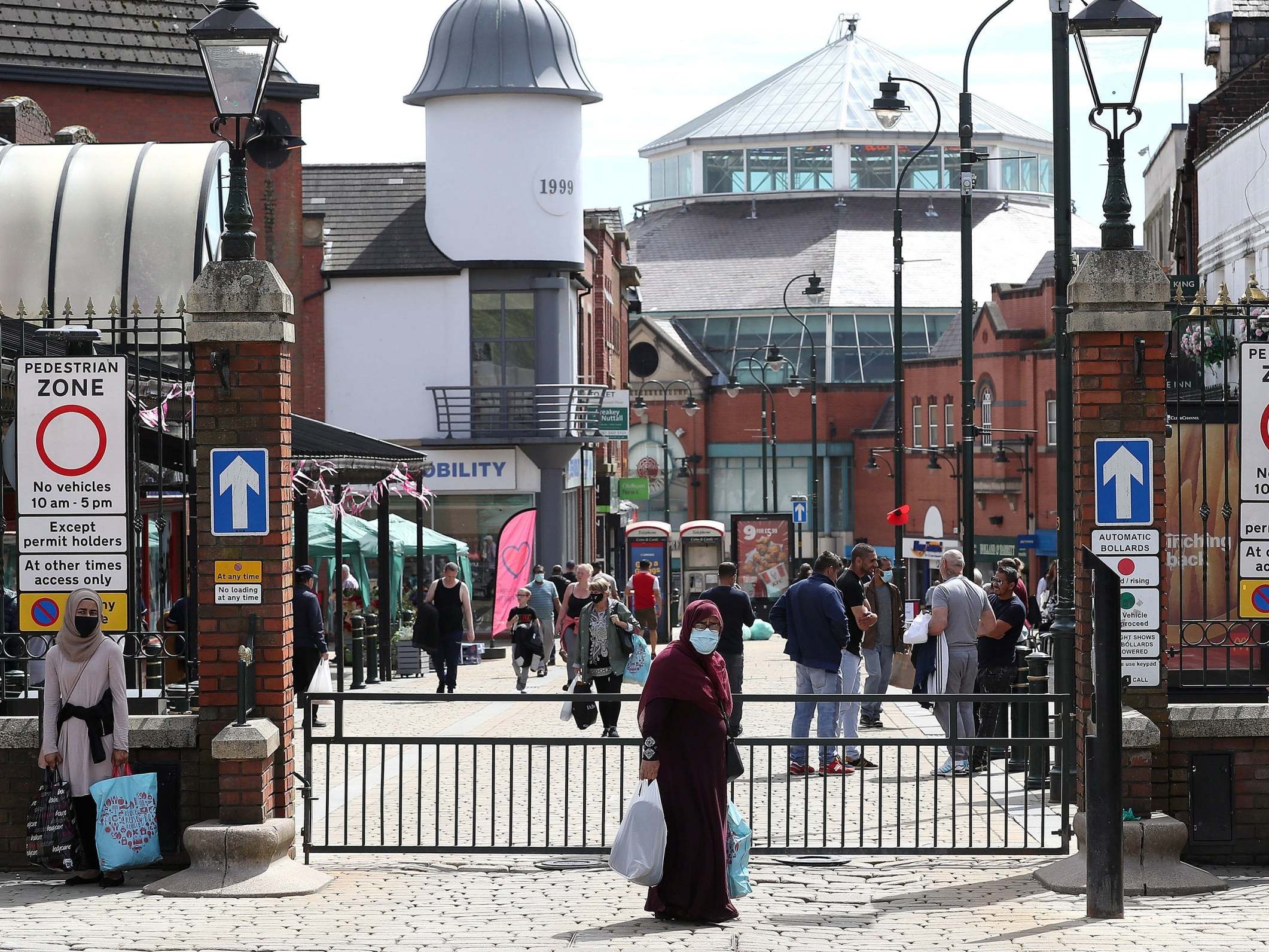Coronavirus: What led to new lockdown restrictions across the north of England?
New rules ban separate households from gathering in homes, gardens and pubs across Greater Manchester, West Yorkshire and east Lancashire
Millions in northern England have woken up to new lockdown rules banning separate households from gathering in homes, gardens and pubs.
The new measures, which affect parts of Greater Manchester, east Lancashire and West Yorkshire, were announced late on Thursday – less than three hours before they came into force.
It comes just days after tougher measures were introduced in Oldham, in Greater Manchester, as heath bosses attempt to slow the spread of local outbreaks.
But what exactly led to the latest northern lockdown?
Matt Hancock gave “households gathering and not abiding by the social-distancing rules” as a reason for the stricter rules.
The health secretary said test and trace data had shown “most of the transmission is happening between households” and between people visiting family and friends – rather than when people go to work or the shops.
He said two households can still meet “at a social distance in a public place outdoors”, such as a park where there is lots of space, but meeting another household in a pub garden or outdoor restaurant space is not allowed in the newly restricted areas.
Does it have anything to do with Eid?
Concerns have been raised over the timing of the restrictions, which coincide with the beginning of the Muslim festival of Eid-al-Adha – especially since they target home gatherings which are a key part of festivities.
Sky News correspondent Inzamam Rashid said an unnamed government source claimed Eid was discussed during a “gold command meeting” on Thursday and “was a factor towards the decision to implement these restrictions particularly because of household transmission”.
However Mr Hancock denied this was the case on Friday, telling BBC Radio 4’s Today programme: “My heart goes out to the Muslim communities in these areas because I know how important the Eid celebrations are.
“I’m very grateful to the local Muslim leaders, the imams in fact, across the country who’ve been working so hard to find a way to have Covid-secure celebrations.

“For instance celebrating Eid in parks where there’s more space available and of course outdoors is safer than indoors.”
Public health statistics show black people and ethnic minorities from south Asia have higher Covid-19 death and infection rates than other population groups.
British-Asians often have bigger families living together with older generations in smaller terraced houses, with many in public-facing jobs such as in the NHS or taxi drivers, creating a greater risk of household transmission, according to the Press Association news agency.
Shadim Hussain, of the Bradford Foundation Trust and chief executive of My Foster Family, a fostering network for black and ethnic minority families, said: “I think some communities are more challenged by the nature of how they congregate, carry out prayers, family gatherings.
“It can be seen from the towns and cities that have been highlighted publicly, those still showing high numbers of cases, Leicester, Bradford, Blackburn.”

Is it to make people spend more money?
Another theory floating around is claiming that the government has banned household gatherings in the affected areas while allowing pubs, bars and restaurants to stay open to get people to spend more money.
By contrast, restaurants, cafes, bars and hairdressers in Leicester were shut when it became the first place in England to be put into a local lockdown last month.
One person wrote on Twitter: “So if you are in Manchester you are not allowed to have friends/family in your house or garden but you are still allowed to go to the bars/restaurants!
“The cynic in me feels like this is just a ploy to get more people out spending money?”
While another wrote: “So let me get this right... in Manchester you can still go to the pub but you can’t go to your Nan’s. Which basically means they’re happy for you to die just as long as you spend some money doing it.”
Additional reporting by Press Association
Join our commenting forum
Join thought-provoking conversations, follow other Independent readers and see their replies
Comments